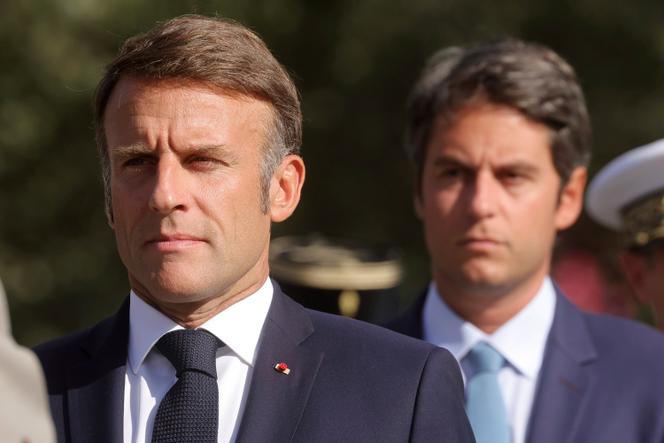


When Emmanuel Macron invited the political parties to the Elysée Palace on August 23, one of the French president's objectives for this new political season was to make sure that Lucie Castets, candidate of the left-wing Nouveau Front Populaire (NFP) alliance for prime minister, would appoint ministers from the radical left La France Insoumise (LFI). She confirmed this, unsurprisingly. Then, he stood by as the other political forces represented in Parliament said they would immediately vote a no-confidence motion against a Castets government with LFI ministers.
After this, Macron planned to announce that it was impossible to appoint Castets, because she would surely be overthrown by a majority of MPs from the center to the far right. The head of state would then have begun a new round of discussions to find a head of government capable of bringing together "the broadest and most stable majority" possible.
The first part of the plan worked: the parties in the presidential coalition and the conservative Les Républicains (LR) quickly expressed their opposition, on Friday, to the idea of a government featuring LFI members. There's little doubt that far-right leader Marine Le Pen and her right-wing ally Eric Ciotti, who met with the president on the morning of Monday, August 26, will also reject a government with LFI ministers.
However, the leader of LFI, Jean-Luc Mélenchon, messed with the president's plan as soon as Saturday, by suggesting that members of his party might not take part in Castets' government. An obvious nod to Léon Blum's 1936 Front Populaire, whose advent was enabled by the Communist Party's "support without participation." A retort designed to show that "LFI ministers, in fact, are a pretext. It's the program you don't want," Mélenchon indirectly told the presidential camp on television.
In fact, it's the left-wing coalition's program that conservatives, the presidential camp and Macron don't want. "Is it possible for you to get along with LFI afterward?" a retired woman asked Macron in Brittany on June 18. "No, these are not government programs, I can't get along with people who want to make a mess of things," Macron replied, denouncing an NFP program that was "totally immigrationist" − using a far-right expression − and included "grotesque things."
Macron's veto to the NFP therefore goes far beyond the mere presence of LFI ministers. For the president and his followers, it is simply unthinkable to appoint a government that would call into question the "mother of all reforms," that of pensions, and that would raise taxes, public spending or the minimum wage. Obsessed with preserving his legacy, Macron wants a government that "conducts a useful policy for the country, with elements of continuity and with a message of security," he told his troops on Friday. Above all, he does not want to "undo what has been done" since 2017, his staff insisted.
You have 38.38% of this article left to read. The rest is for subscribers only.
